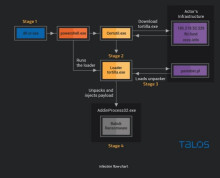Patch fixing critical Log4J 0-day has its own vulnerability that’s under exploit
Last Thursday, the world learned of an in-the-wild exploitation of a critical code-execution zero-day in Log4J, a logging utility used by just about every cloud service and enterprise network on the planet. Open source developers quickly released an update that patched the flaw and urged all users to install it immediately.













































































